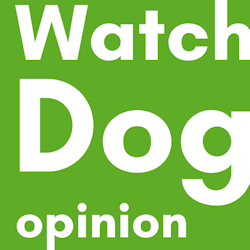SEJournal Online is the digital news magazine of the Society of Environmental Journalists. Learn more about SEJournal Online, including submission, subscription and advertising information.
 |
EJ TransitionWatch: EPA Science Integrity Threatened by House Republicans
WatchDog Opinion by Joseph A. Davis
House Republicans are preparing an attack on scientific integrity at the U.S. Environmental Protection Agency. Because of it, journalists could lose what’s left of their access to EPA scientists. Worse, it could represent a further assault directly on the EPA’s science.
Exhibit A of this initial attack is a Nov. 14 letter from Rep. James Comer, R-Ky., chair of the House Oversight Committee, to EPA Administrator Michael Regan demanding information about the agency’s scientific integrity policy.
The EPA had a scientific integrity
policy during Trump’s first stint
— and Trump never publicly
complained about it.
Comer’s letter weaponizes patent untruths. One is his assertion that scientific integrity is all President Joe Biden’s idea. Nope. The EPA had such a policy during Trump’s first stint — and Trump never publicly complained about it.
Even before that, President Barack Obama had made a big deal about requiring almost all agencies to draw up scientific integrity policies (see his executive memo of March 9, 2009). SEJournal’s WatchDog Opinion fussed about it back then. The Society of Environmental Journalists has supported the EPA’s policy but called for even more.
Obama didn’t really have to order the EPA to do so — because the EPA had already adopted one years before. Back as far as 1999.
We’re not saying the Oversight Committee is lying; maybe they are just ignorant. But if you are attacking science, you might want to get the facts right.
The key is letting reporters talk to agency scientists
What’s not to love about scientific integrity? Yet from an environmental journalist’s viewpoint, one of the main benefits of the EPA scientific integrity policy is that it’s actually the closest thing the EPA has to a press policy.
 |
That’s because the scientific integrity policy says the EPA has to let reporters talk to agency scientists. Kinda. It’s fuzzy on some points. And obstacles to interviewing EPA officials remain one of the biggest complaints of SEJ members.
The latest draft of the EPA’s scientific integrity policy — revising the last full and final EPA policy from 2021 — is still proposed and under review.
One thing to like about the current proposal is that it finally treats interference by political appointees as a threat equivalent to scientists who are, say, faking data.
But that’s exactly what Comer and cronies are now complaining about most loudly.
“Policymaking by the administrative state,” Comer’s letter declares, “should be informed by scientific evidence—including views that challenge the existing consensus—and accountable to the American people and their elected leadership, not beholden to career bureaucrats implementing their own agendas.”
 |
Industry capture corrupts science
This turns reality on its head. Excellent reporting by the likes of ProPublica’s award-winning Sharon Lerner has extensively documented the political capture of EPA regulators by the chemical industry — and the corruption of science resulting from politically appointed higher-ups.
Another example (reported by The Associated Press’ Michael Biesecker) is the EPA’s approval of chlorpyrifos after a $1 million “donation” from its maker, Dow Chemical, to Trump’s 2017 inaugural.
Comer’s letter is pure gaslighting when it says: “It is likely that the goal of these scientific integrity efforts is less to ensure the best science is considered when making policy decisions and more to buttress support for and entrench far-left progressive policies in the administrative state.”
Comer’s letter paints a
target on the EPA’s scientific
integrity official, asking specifically
for documentation of her activities.
And the letter paints a target on Francesca Grifo, the EPA’s scientific integrity official, by asking specifically for documentation of her activities. Grifo is herself a scientist, one who has survived several administrations. Including Trump 1.0.
The story of the GOP attack on science integrity was revealed by the nonprofit whistleblower group Public Employees for Environmental Responsibility.
PEER, by the way, does not think the EPA’s scientific integrity policy is tough enough. It supports its position by citing extensive criticism of the EPA’s policy from the agency’s inspector general, who is supposed to be an independent and apolitical watchdog.
The bigger concern over Comer’s contentious letter is whether it’s a precursor to a planned attack by an incoming Trump 2.0 administration on the EPA’s science itself.
Joseph A. Davis is a freelance writer/editor in Washington, D.C. who has been writing about the environment since 1976. He writes SEJournal Online's TipSheet, Reporter's Toolbox and Issue Backgrounder, and curates SEJ's weekday news headlines service EJToday and @EJTodayNews. Davis also directs SEJ's Freedom of Information Project and writes the WatchDog opinion column.
* From the weekly news magazine SEJournal Online, Vol. 9, No. 44. Content from each new issue of SEJournal Online is available to the public via the SEJournal Online main page. Subscribe to the e-newsletter here. And see past issues of the SEJournal archived here.












 Advertisement
Advertisement 



